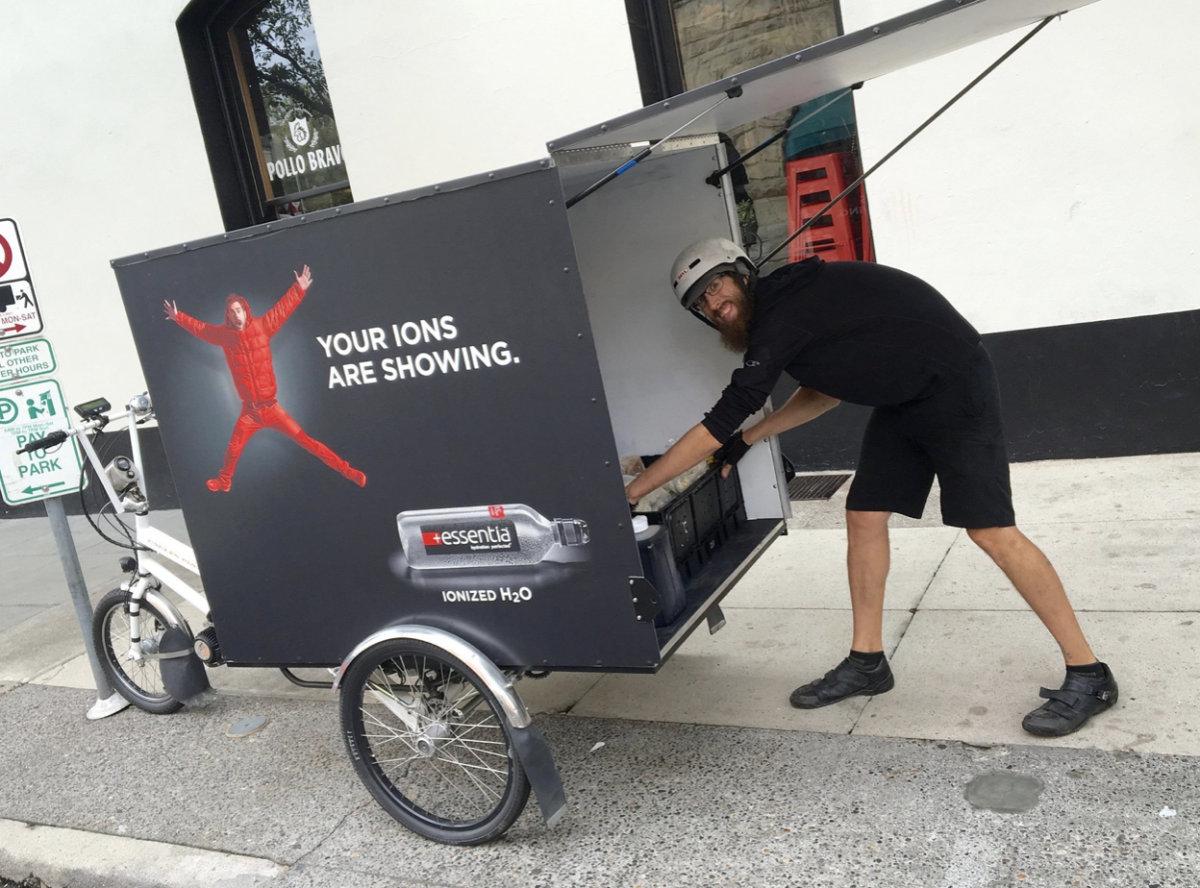
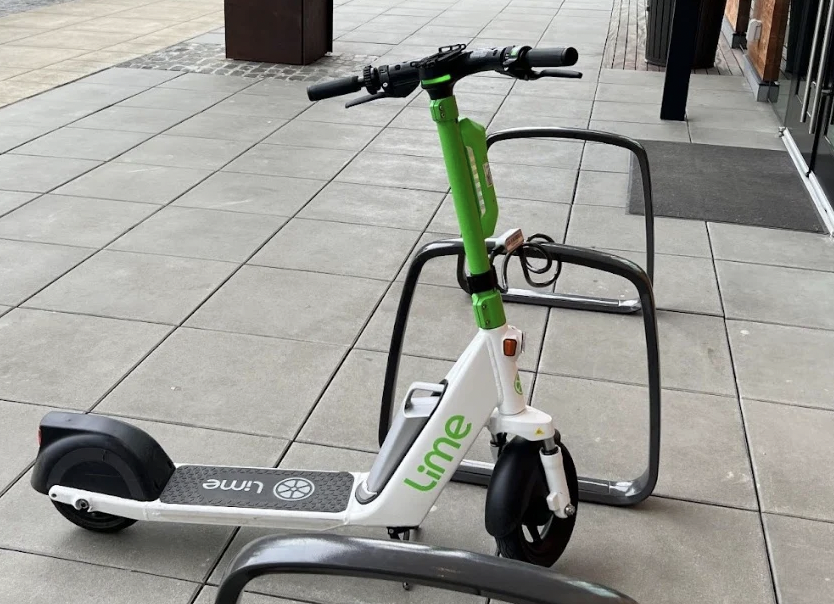
“It’s really cool that a big company like that was like, ‘yeah, this makes sense.’ It just validates what we’re doing.”
– Phillip Ross, B-Line Urban Delivery
This just in from the worlds of micromobility and urban freight delivery… Electric scooter company Lime has inked a deal with Portland’s B-Line Urban Delivery to decarbonize their scooter battery rebalancing system.
Lime has typically relied on cars and trucks to carry dead scooters to a recharging spot. Now that they’ve changed up the scooter design so the electric battery is swappable, they’re looking to make that process more efficient (and less reliant on gas-powered vehicles). Enter B-Line, which is swooping into many new opportunities with their 600-lb capacity electric-assist trikes to lessen the greenhouse gas emissions from last-mile freight delivery.
Starting later this month, you’ll be able to spot electric trike operators picking up Lime scooter batteries to get them charged-up and back out on the streets.
“One of our things that we like to do B-Line is to figure out how to decarbonize everything,” Phil Ross, B-Line’s Director of Sales & Marketing, told BikePortland. “One of the ways we do that is by helping out businesses that are labor-intensive and use gasoline or diesel automobiles. We give them an option to switch to our delivery system, and then we can take everything out the last-mile with our electric-assist trikes.”
The Lime crew also sees this as a move toward a cleaner future.
“We’re thrilled to partner with B-Line as part of our ongoing efforts to work with community leaders in Portland and to always be improving our efforts towards sustainability,” Hayden Harvey, Lime’s Senior Manager of Government Relations for the Pacific Northwest, wrote in a statement to BikePortland. “B-Line allows us to build on that major step forward by removing even more of the need for cars in favor of human scale vehicles, which is a core part of Lime’s mission.”
Right now, electric scooter companies are vying to be Portland’s permanent scooter fleet operator. If Lime wins the contract, we can expect to see this partnership scoot well into the future.
And as we mentioned in our story about a recent e-bike policymaker ride, B-Line’s headquarters on SE 7th and Salmon streets have a large, 150 kilowatt solar panel system on their roof, reducing the carbon footprint of their electric trikes even further.
This partnership between electric mobility programs conjures dreams of a self-sustaining electric transportation system that isn’t as far-fetched or futuristic as it might seem. The Jetsons may have had flying cars, but we have solar-powered electric trikes and scooters, and I think that’s a better deal.
Plus, B-Line’s trike carrying capacity does away with the outdated notion that electric vehicles are just cars. Electric-assist trikes, bikes and scooters all have the ability to be very useful vehicles that are more efficient and practical than cars in the urban environment.
Ross said he hopes other companies like Biketown, Portland’s e-bike share program, will consider using B-Line’s services as well.
“It’s exciting that a company like Lime has the option to do this now, and the fact that they took advantage of it is really heartening,” Ross said. “It’s really cool that a big company like that was like, ‘yeah, this makes sense.’ It just validates what we’re doing.”



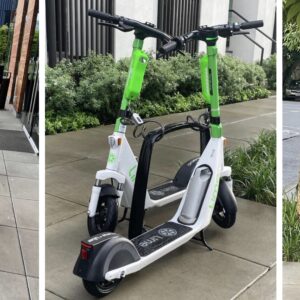
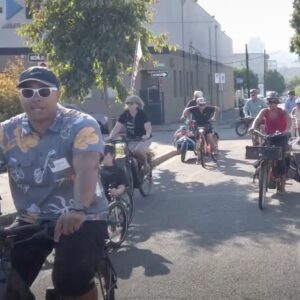
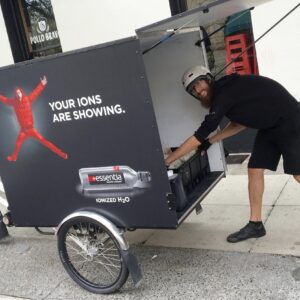

Thanks for reading.
BikePortland has served this community with independent community journalism since 2005. We rely on subscriptions from readers like you to survive. Your financial support is vital in keeping this valuable resource alive and well.
Please subscribe today to strengthen and expand our work.
B-line is an amazing company, this seems like a great fit.
Surely just a typo, but a 150W is less than the output from a single solar panel. 150kW is more like it (and matches what one would expect from the 631 panels across two rooftops on the satellite view). That’s an impressive system!
Argh, those Lime scooters & Co are an orthopedist’s dream. And a jawbreaker for blind people! Every time I see them I drag them to the side, down embankments (not in the river, I’m not a barbarian!) The more hits they take the sooner they’ll get withdrawn….